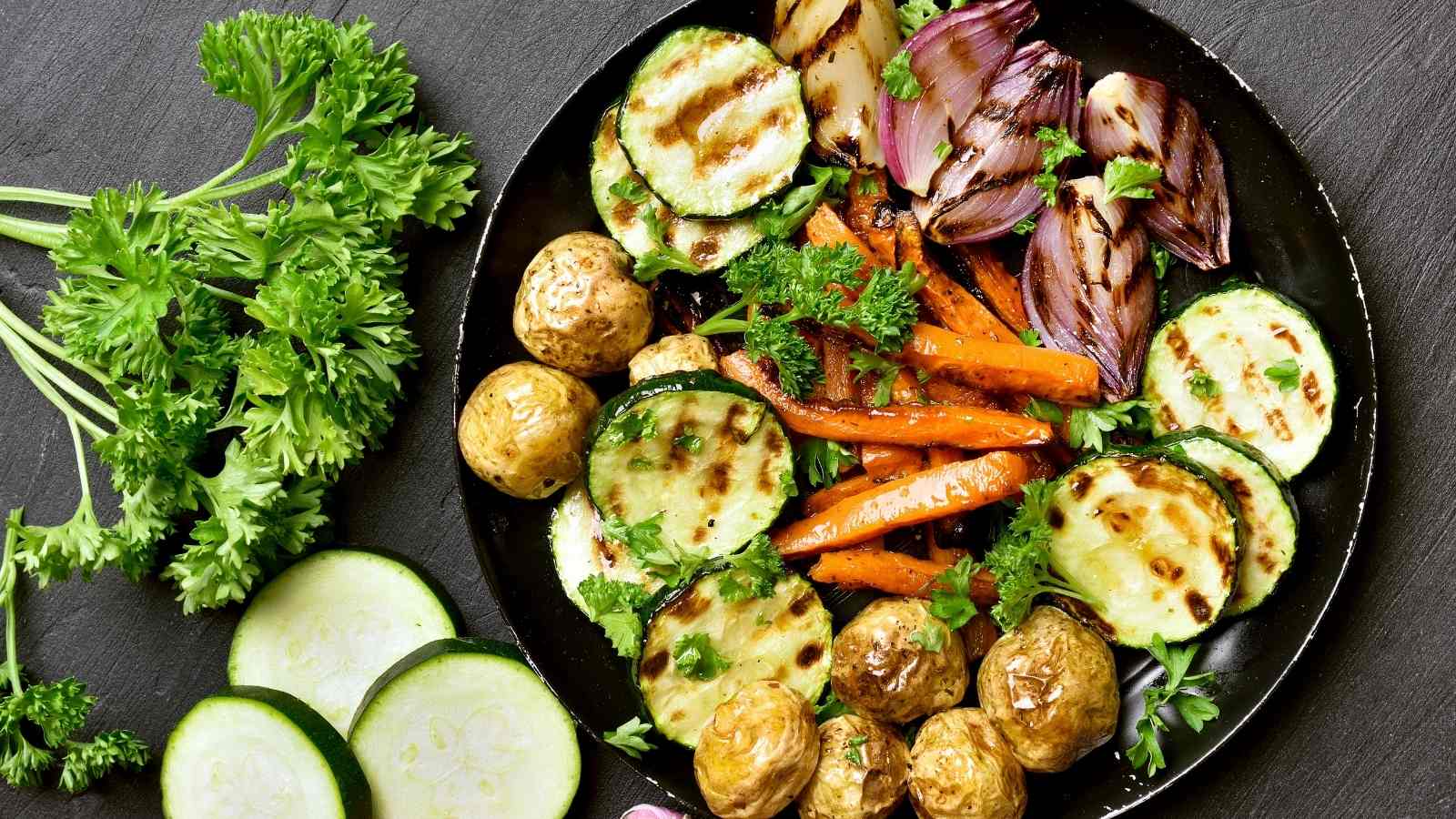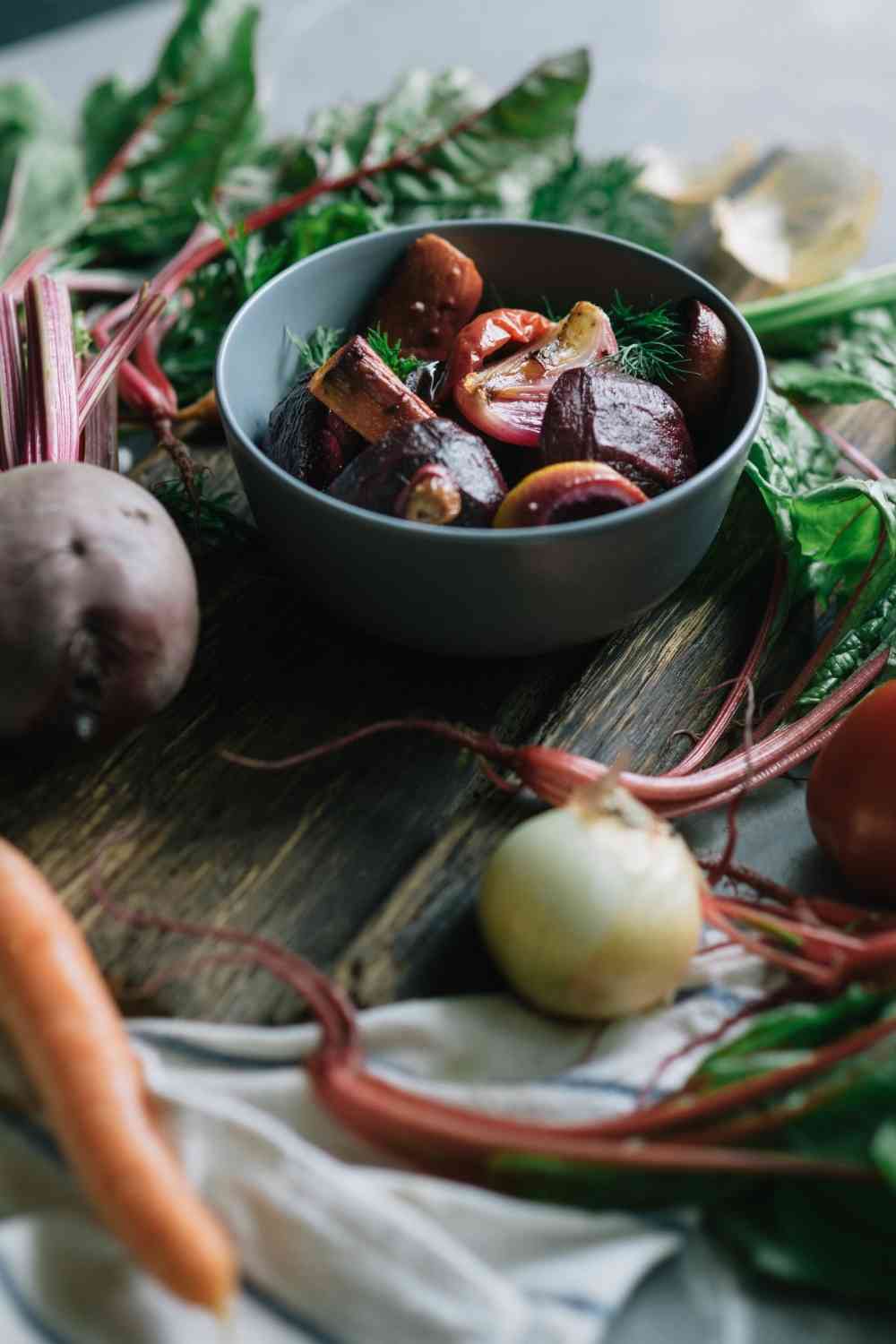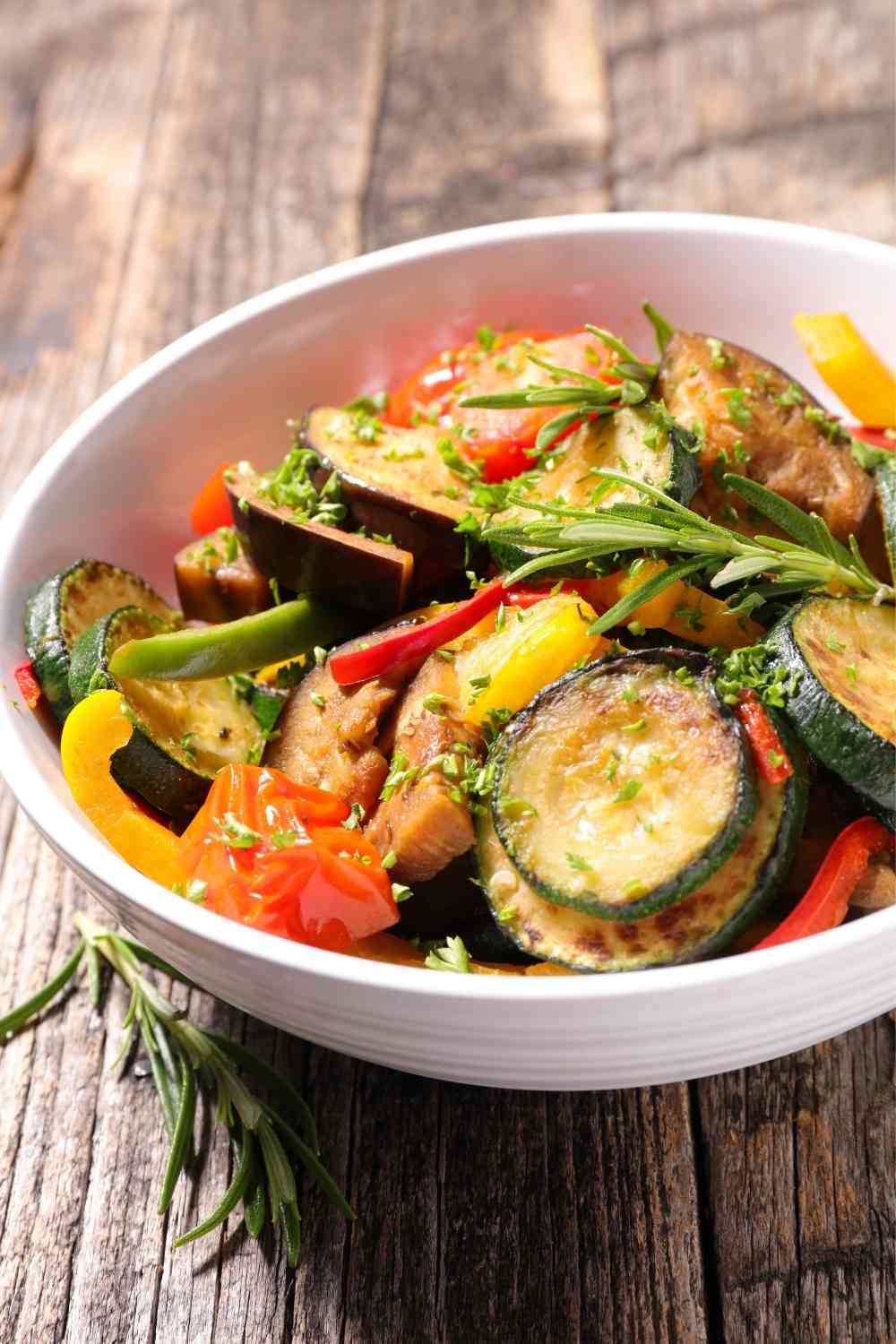"Eat your veggies," was a familiar refrain in my youth, usually said by well-intentioned parents who wanted me to develop good eating habits. As an adult, I attempt to stick to the guideline in order to eat a well-balanced diet. However, certain veggies are easier to consume than others.
Take roasted veggies, for example. I could eat a dish full of these perfectly crisp, delicate, and tasty roasted veggies. But roasted veggies that are overcooked or undercooked, strangely textured, mushy, or flavorless? Thank you, but no.

Nobody wants to eat roasted veggies that aren't cooked properly. It's not difficult to make great roasted veggies, but there is an art to getting a flawless result. Here, we'll look at the science and art of properly roasted vegetables by uncovering some of the most frequent mistakes that people make while roasting vegetables in the oven–and how to solve them. These suggestions can help you get tasty outcomes every time.
What are the benefits of roasting vegetables? Obviously, veggies are good for you. They have a low-fat content, a high fiber content, and are abundant in vitamins and minerals. But what distinguishes roasted veggies from, for example, boiled or steamed vegetables? There are many causes for this.
- Vegetables that have been roasted keep their nutrition. Some vitamins in vegetables (such as vitamins B and C) are water-soluble, which implies that nutrients may leach out when the plants are soaked in water.
- Roasted veggies provide a lot of flavors. Roasting veggies in the oven with basic seasonings–for example, salt, pepper, and olive oil–requires minimal prep time but yields rich, tasty results. Roasting veggies, from earthy sweet potatoes to mellow eggplant to sweet carrots, is an excellent technique to bring out their inherent taste.
- Vegetables that have been roasted have a pleasant texture. Vegetables roasted in the oven have a distinct texture, with a soft, delicate center and somewhat crunchy skin. This difference of textures provides the same delightful crunch and yield to the taste as fried veggies like french fries, but with a fraction of the fat.
- Vegetables may be roasted with a minimum of fat. You have complete control over the amount of fat that goes into the meal. Although a little olive oil enhances the flavor of roasted veggies, it is not necessarily essential. In your eating regimen, you may include as much or as little oil as you choose.
When it comes to roasting veggies, there are a few common blunders to avoid. When it comes to roasting veggies, these are some of the most typical concerns. Fortunately, all of these mistakes are simple to correct.
You don't use the right quantity of oil
A typical presentation is to roast vegetables with a sprinkle of olive or other oil. It would be a mistake, though, to use the same quantity of oil for all vegetables. Various veggies need varying quantities of oil.
Consider the contrast between a broccoli floret and an eggplant slice. If you spray olive oil over the broccoli, it will stay on the surface since it is not very porous. As a result, you won't need to use much olive oil. A slice of eggplant, on the other hand, or other porous vegetables, will need extra olive oil to provide flavor.

Make sure the quantity of oil you use is appropriate for the veggies you're roasting. If you're blending veggies, give the more absorbent ones a bit of extra olive oil.
Your veggies aren't seasoned
If you don't season your veggies, they will look fantastic but taste bland. Roasted veggies are dull and uninteresting without flavor.
Seasoning your veggies can assist to guarantee that they taste as delicious as they look. Salt and pepper are traditional, but you may also play around with other tastes. Spices may be used in a variety of ways, such as carrots with rosemary, eggplant slices with za'atar spice, or yams with piri-piri spice.
The veggies aren't sliced equally. Those uneven pieces may seem creative if you chop veggies in a variety of ways, but they will not cook uniformly. Before the bigger portions have even been browned, the smaller parts may become black and charred.
Cutting your veggies to about the same size using a sharp knife will help them roast evenly in the oven.
You are overcooking them
Low and slow cooking is a technique used to prepare a variety of dishes, but roasted vegetables are not one of them. Your veggies will be mushy and uninteresting if you bake them for too long at a low temperature. Use a hot oven to roast your veggies for the ideal crispy surface and soft inside.
Cooking veggies in a preheated oven at 400°F to 450°F will provide a crispy outside and a soft but not mushy center. Cooking times may vary; look for visible signals of doneness, such as browning on top, on the veggies.
You crammed too much into the pan
A packed pan resembles a busy room with a lot of people. Even the simplest tasks become tough. When the pan is packed, there are many overlapping and contacting components that will be insulated from the heat, resulting in uneven cooking outcomes.
Use a big pan that can comfortably fit all of your vegetables–or split it into two batches of roasted vegetables–for the best results. They don't require a lot of room all around them, but they should be able to lie in a single layer.
The veggies are not moved
Remove the pan from the oven halfway through the roasting process and mix everything around on the tray. Everything will brown evenly as a result of this. While various veggies take varying amounts of time to roast, most vegetables may be done in 30 to 40 minutes.
It's a good bet that stirring the veggies approximately 15-20 minutes into the roasting process will assist to maintain the cooking even for all of the vegetables.

They're baked in a deep baking dish
Do you think roasting veggies in a casserole dish is a good idea? It'll do the job, but not quite as well as a baking sheet or rimmed baking pan. The higher sides of pyrex-style baking pans trap the steam released by roasting vegetables, conserving it and preventing the veggies from turning crunchy.
Vegetables that are evenly distributed on a flat or rimmed baking pan will get greater covering and toasting.
You cover them as soon as they're done cooking
Allow your roasted veggies to cool completely before covering and storing them. The heat they emit may be trapped in airtight packaging, causing steam to form, making your vegetables mushy.
Whether you're serving them with perfectly cooked pork chops or as a vegetarian main dish, roasted veggies are a terrific addition to your culinary arsenal. Cooks of all skill levels can achieve excellent roasted veggies. You'll be well on your way to making wonderful recipes if you follow these basic principles.




